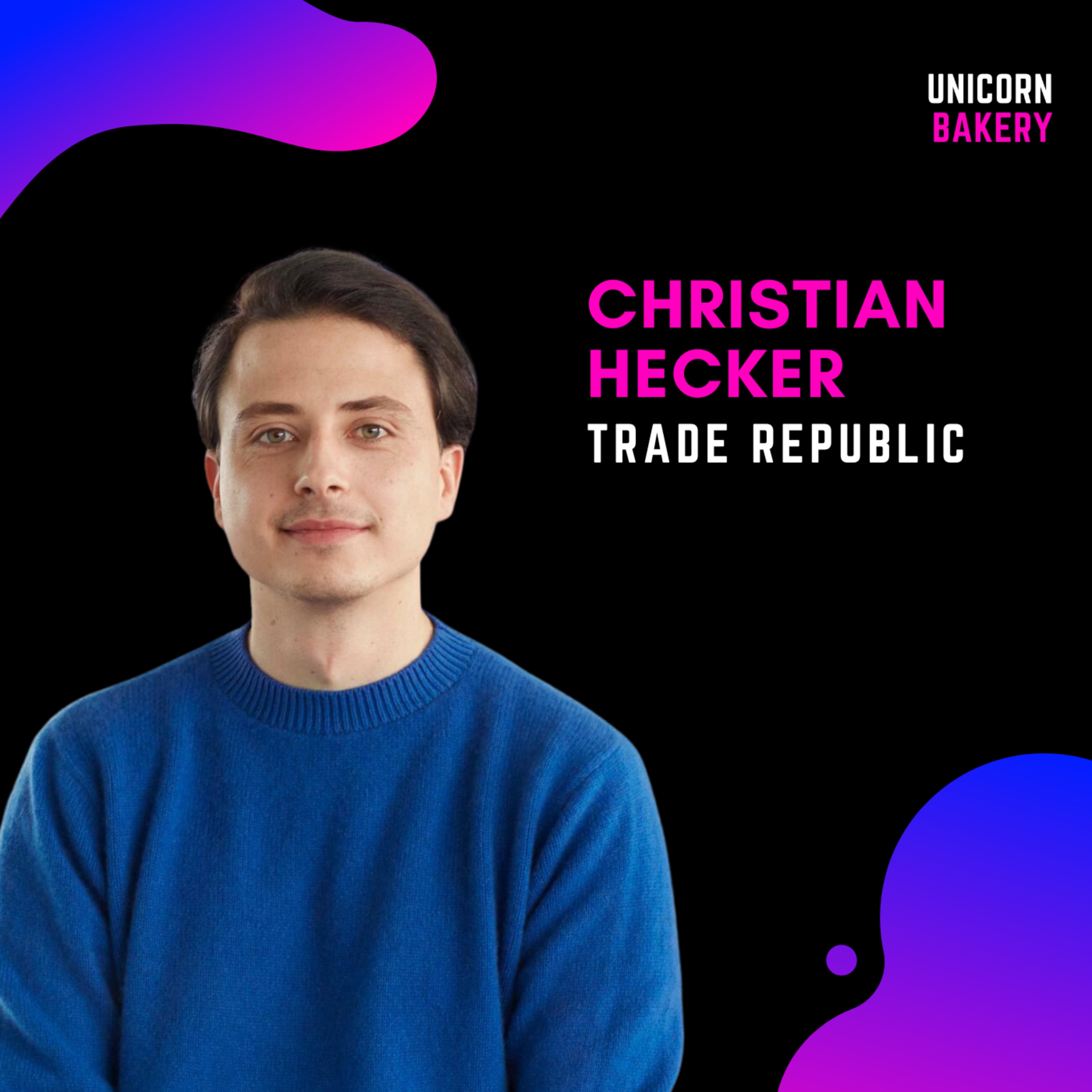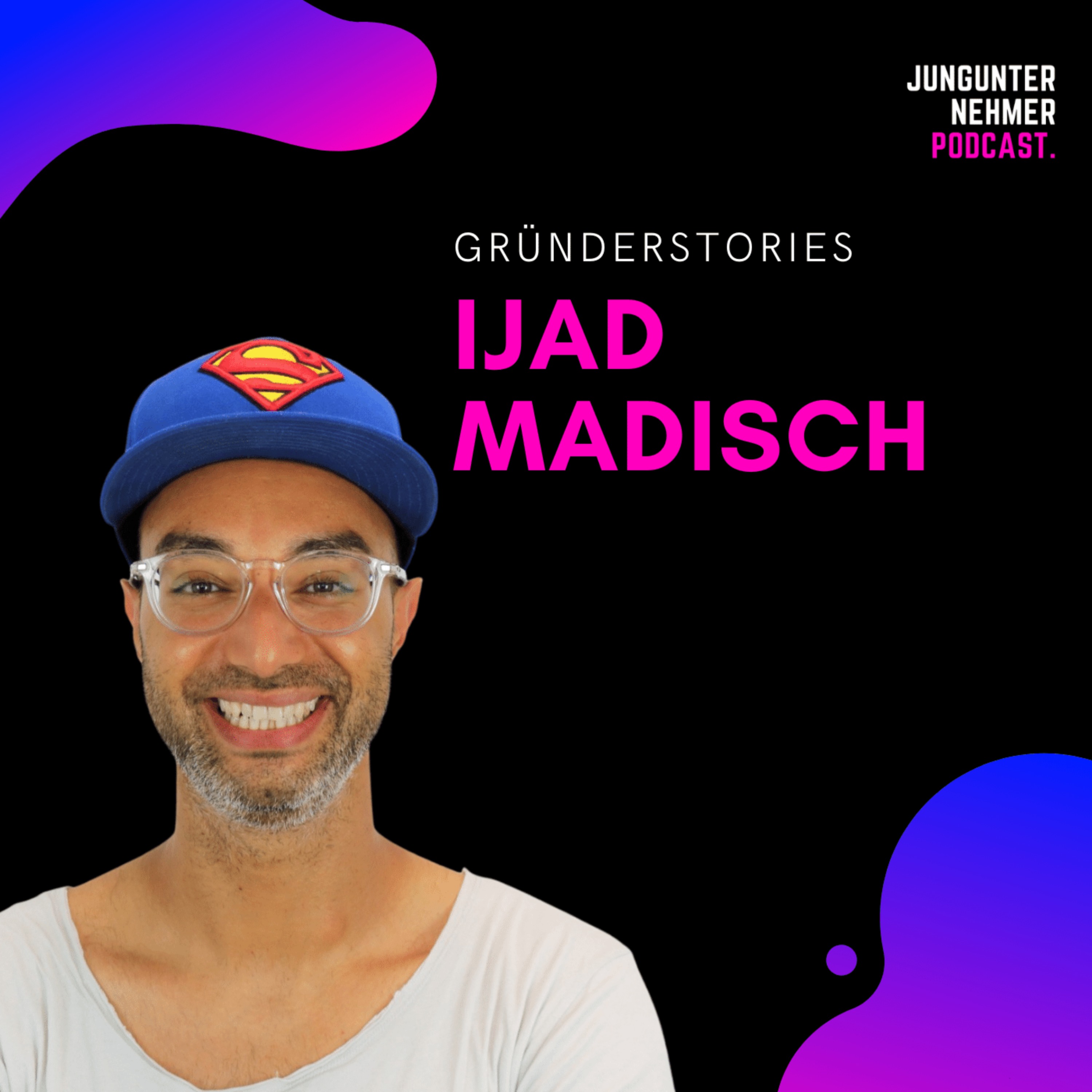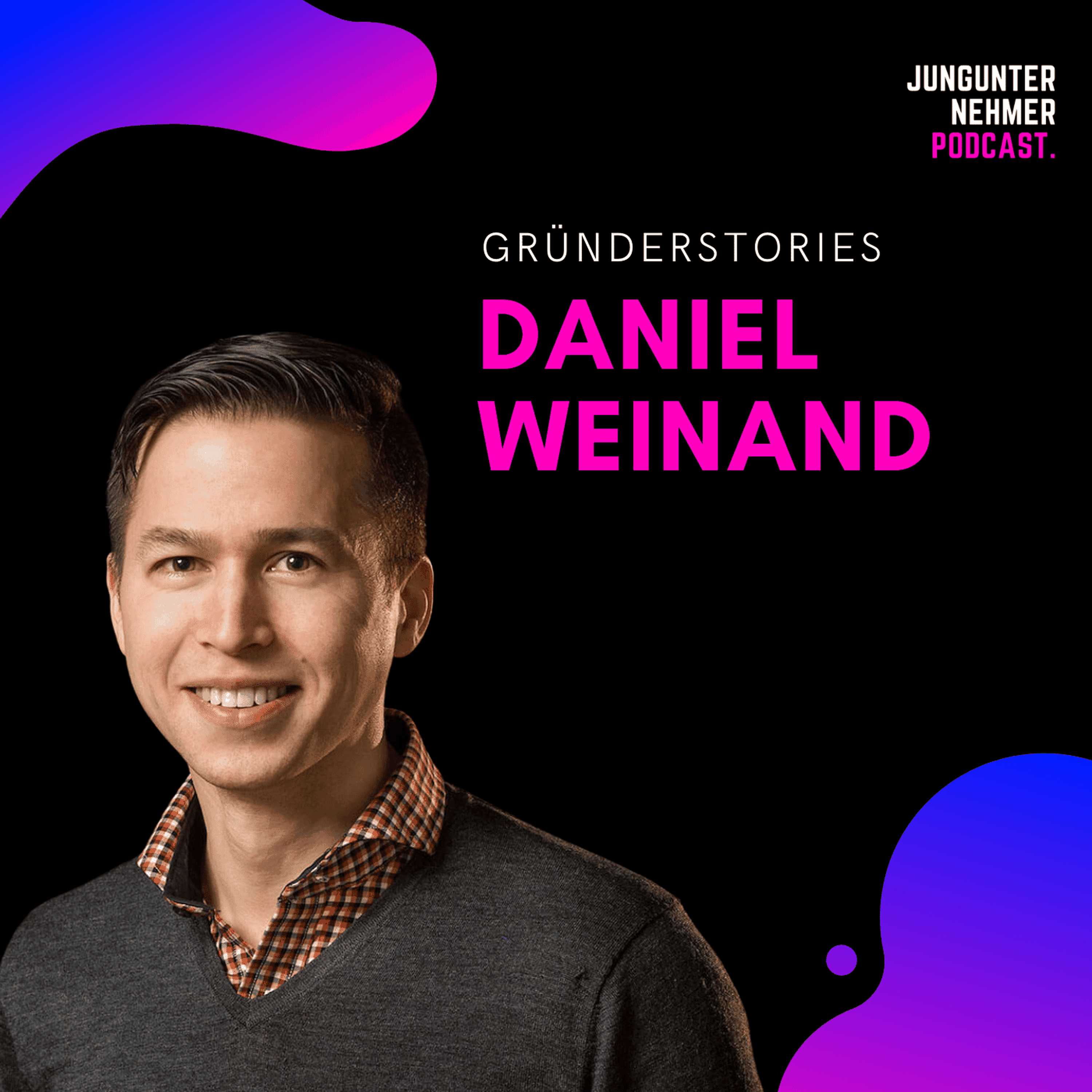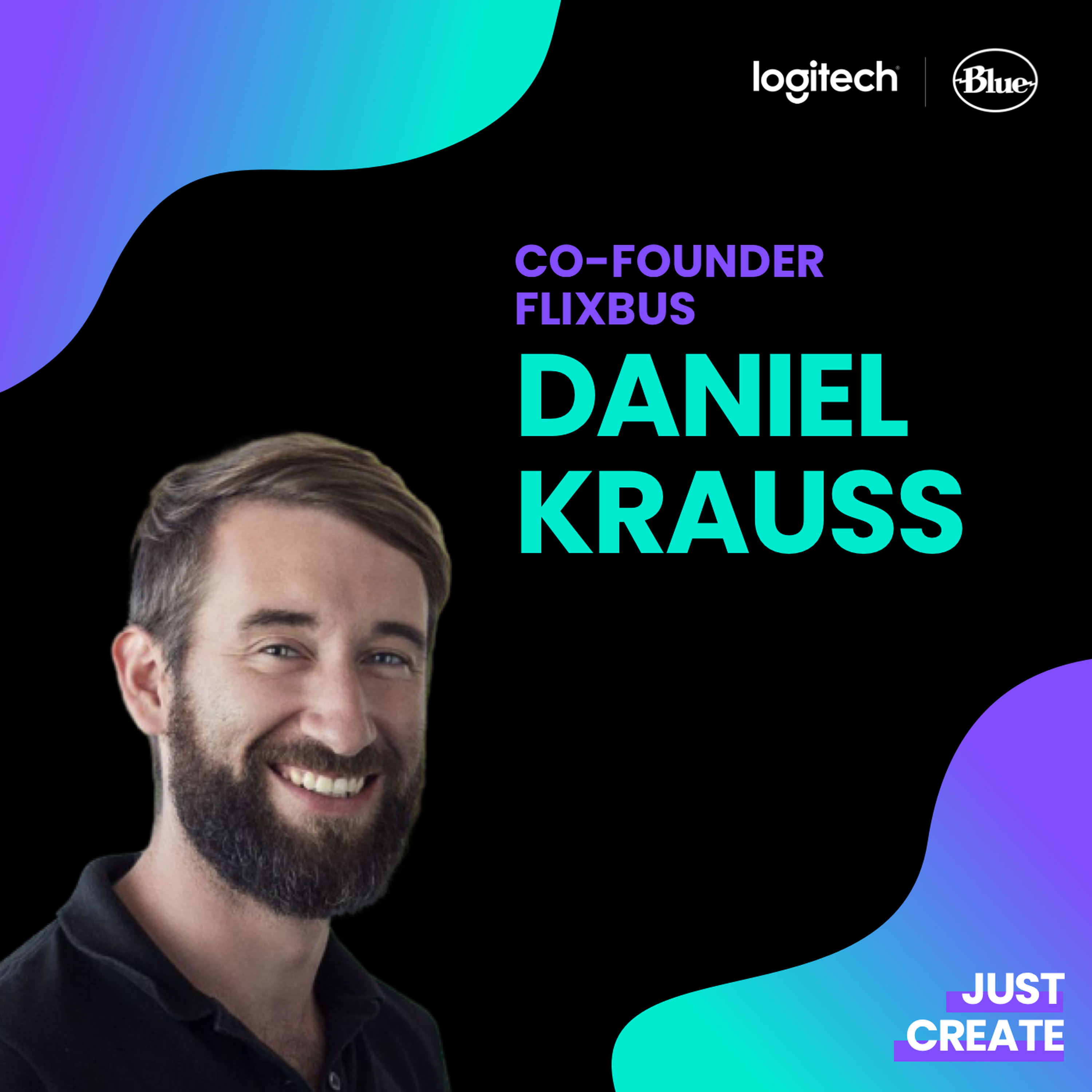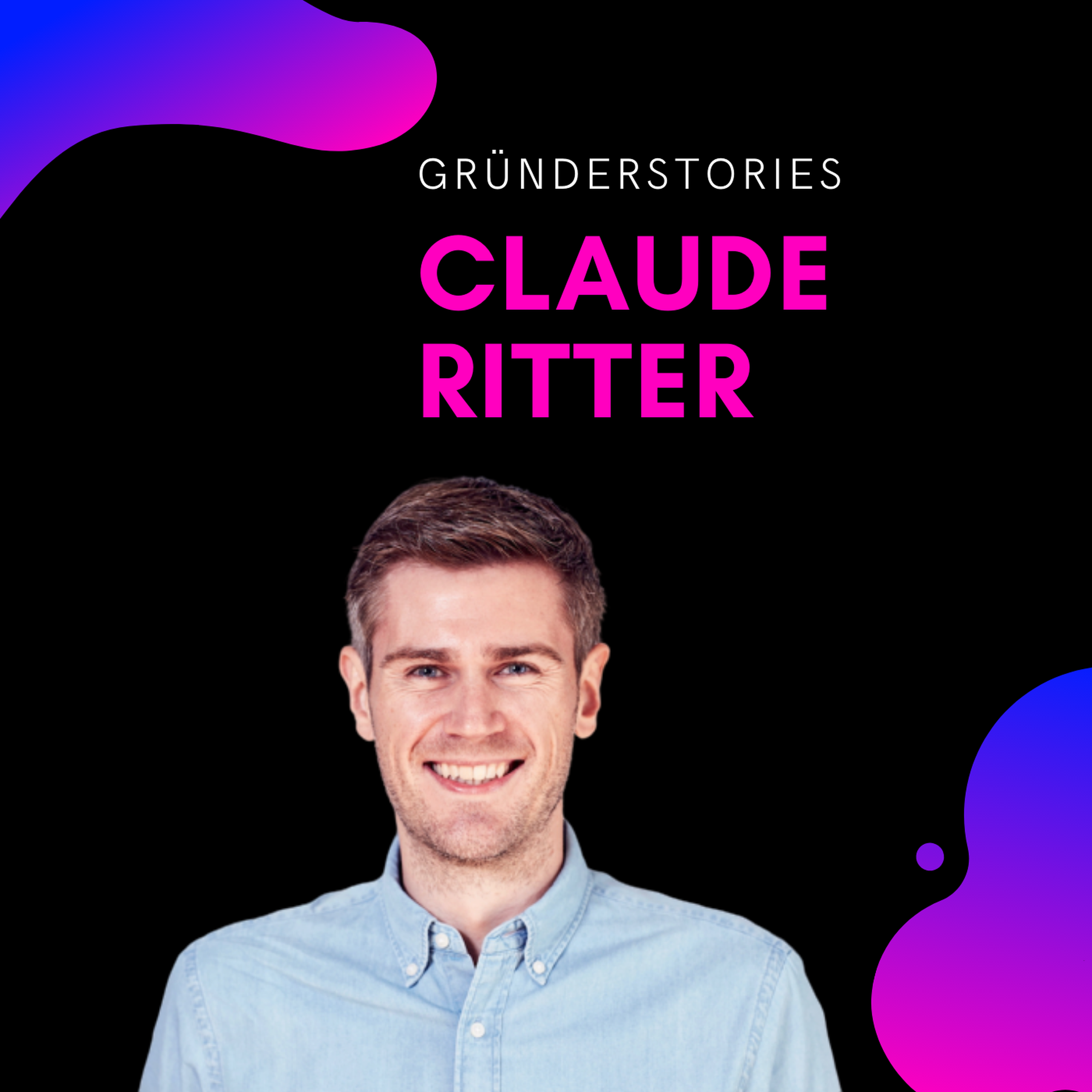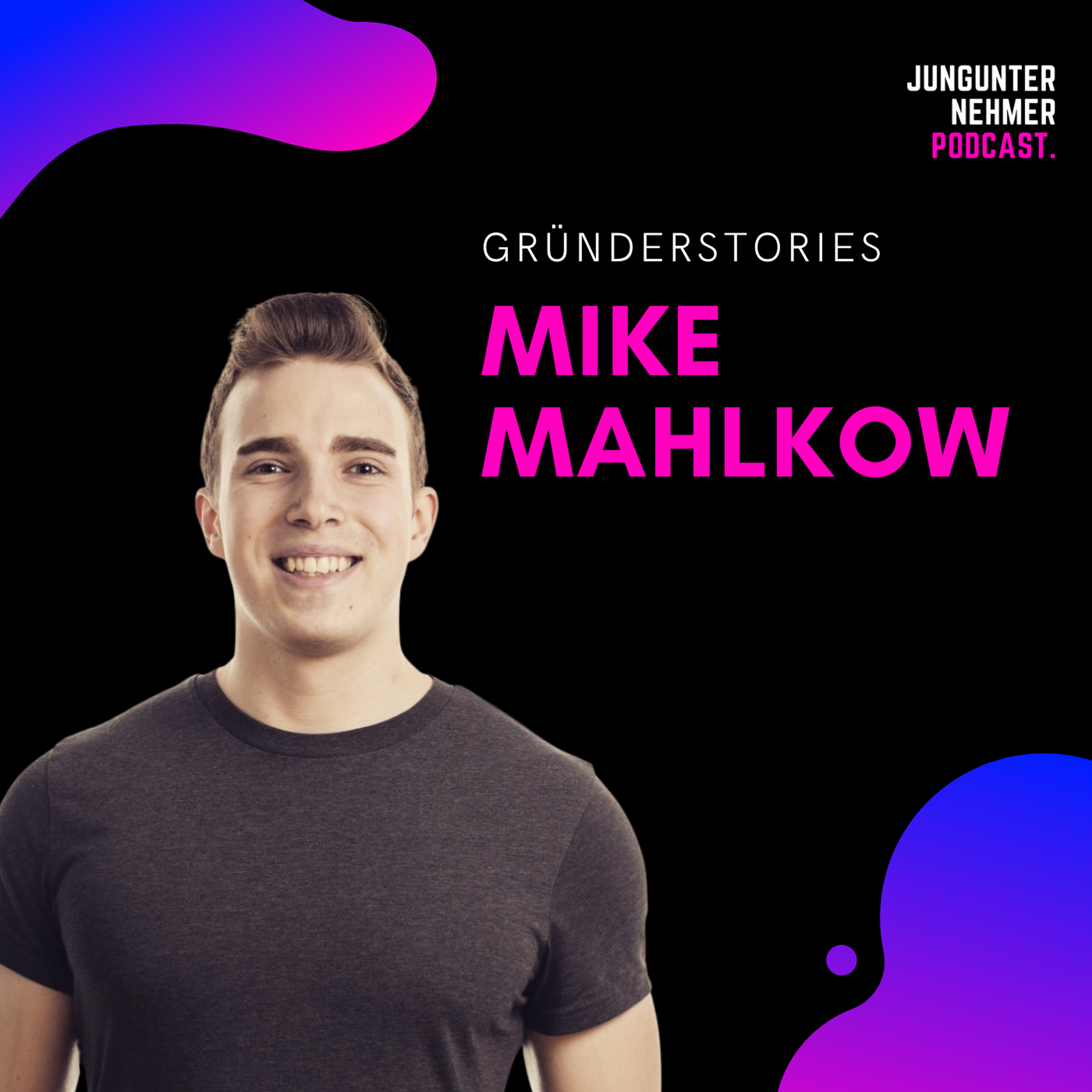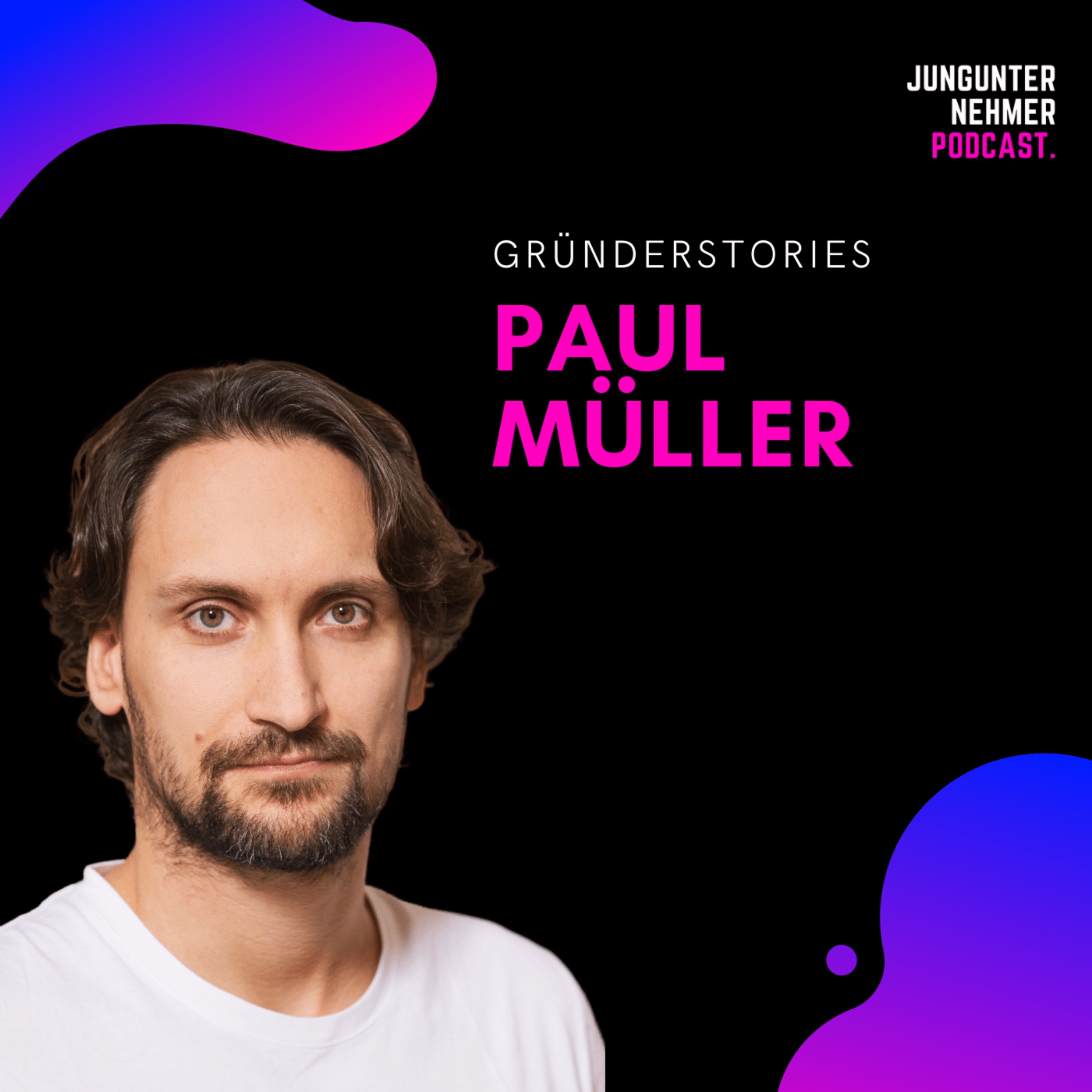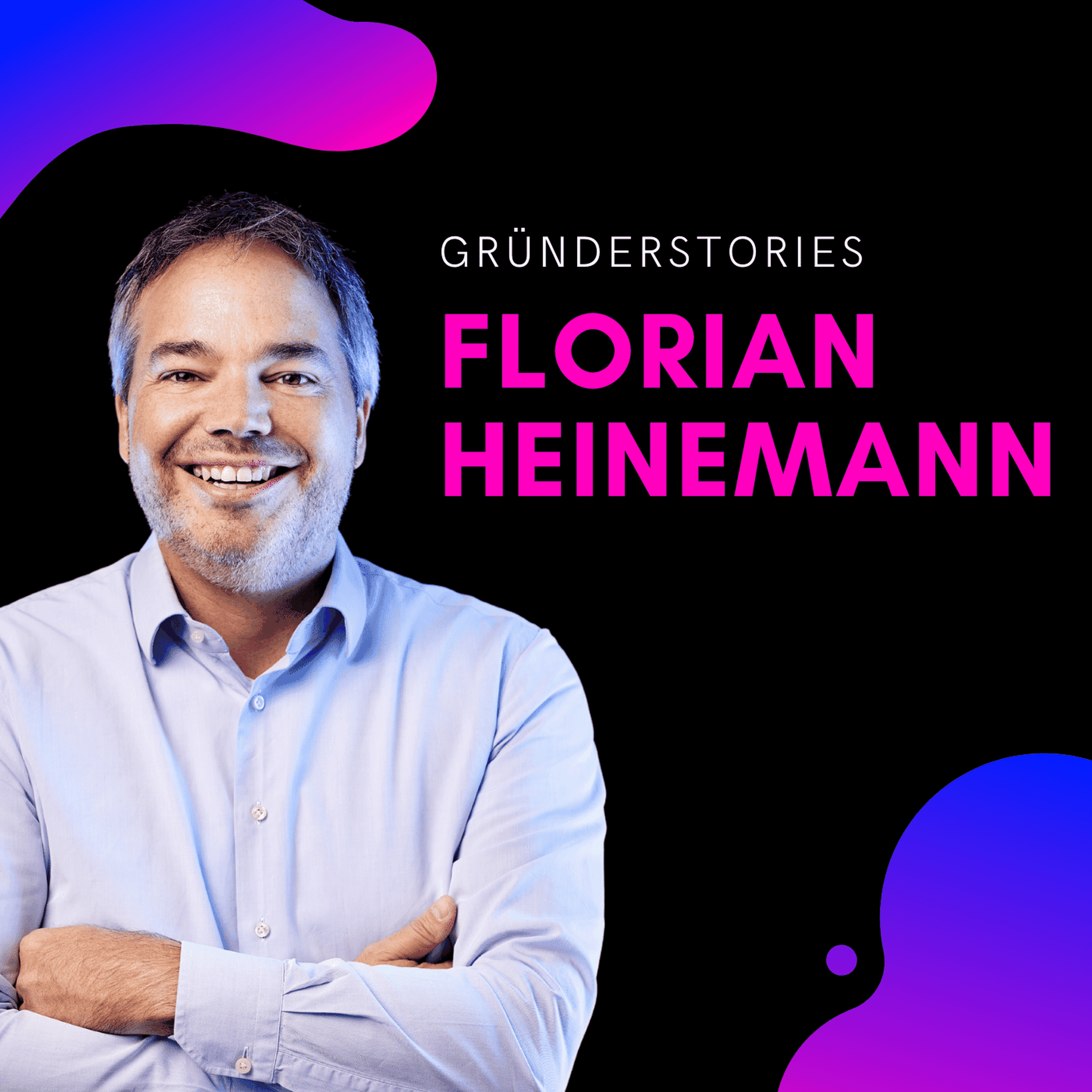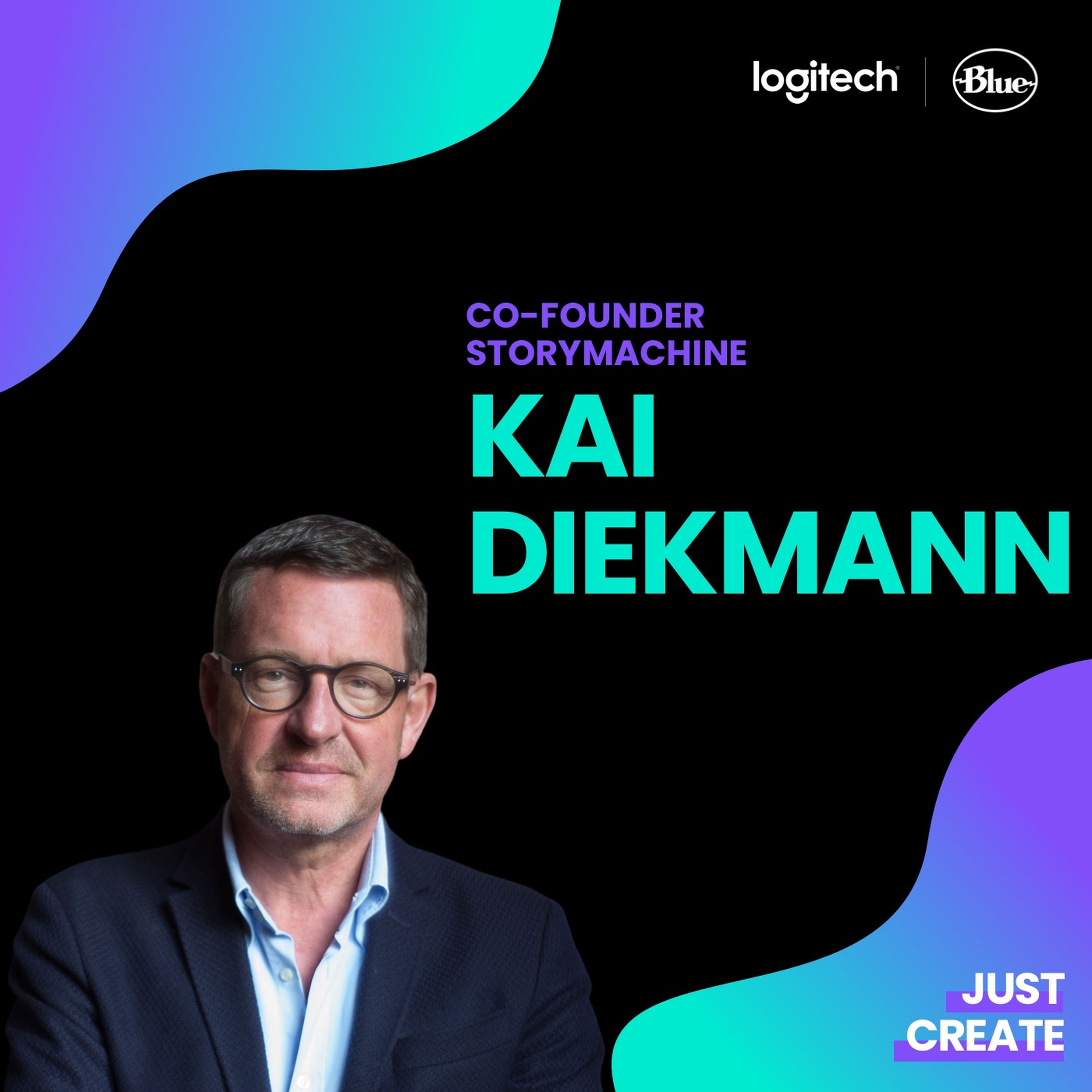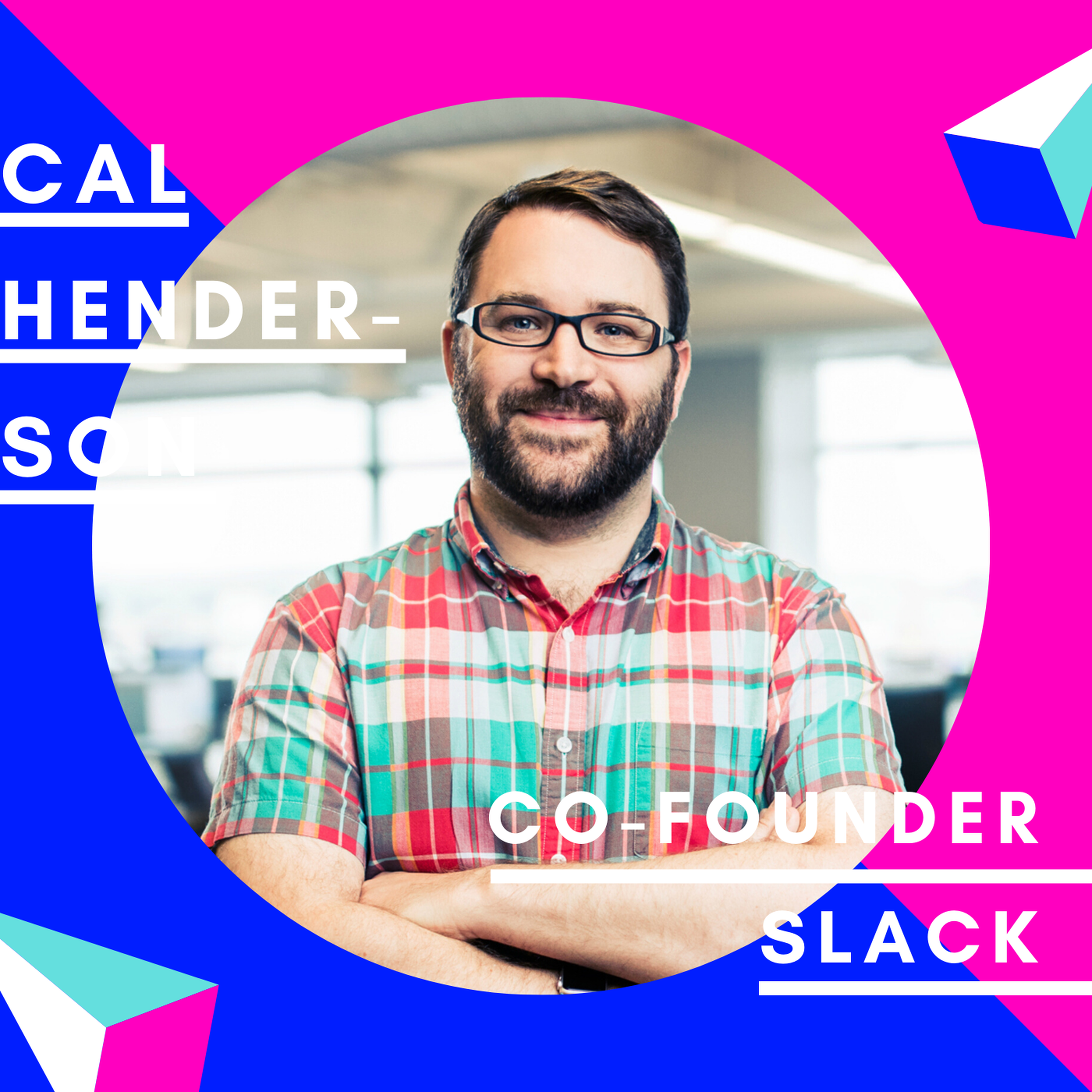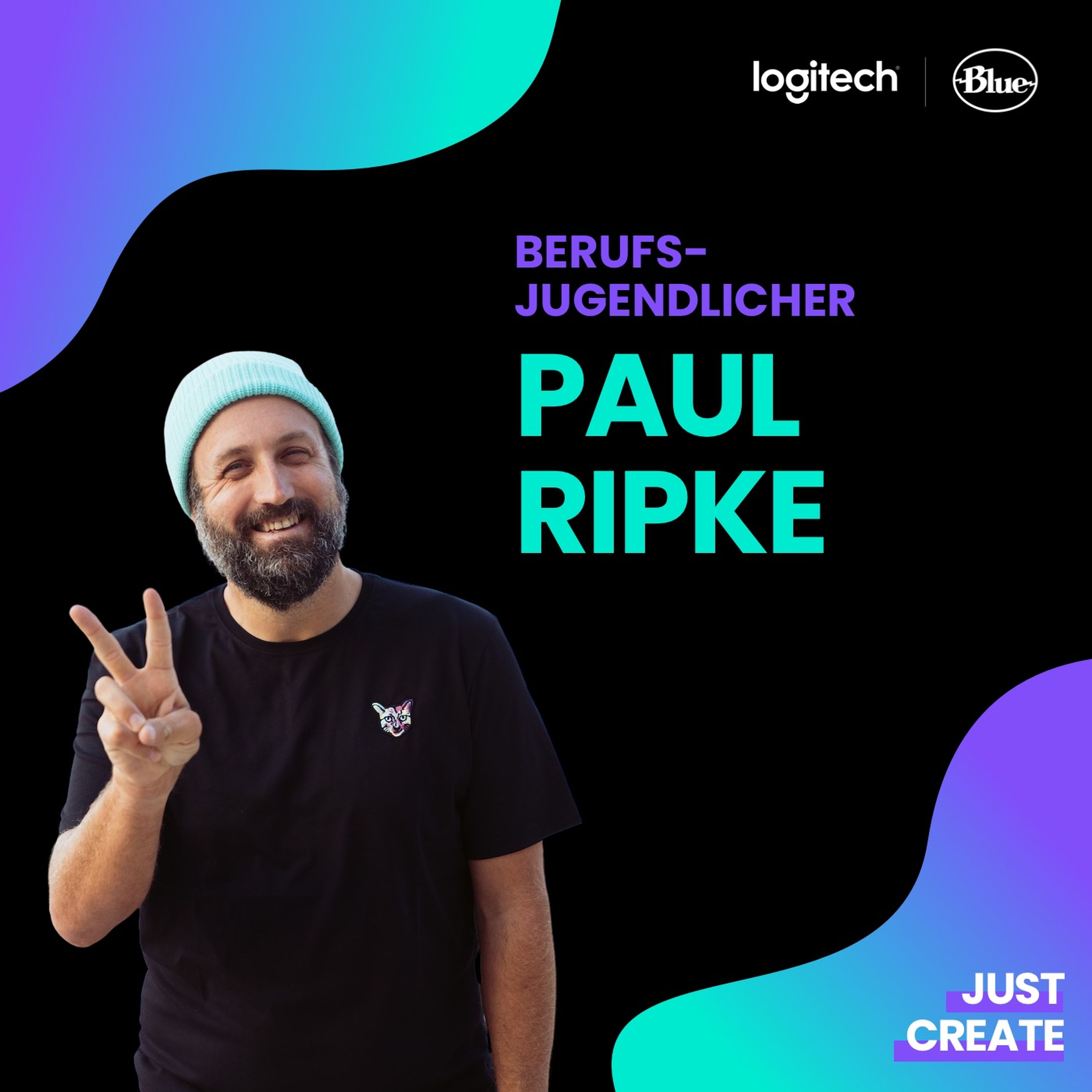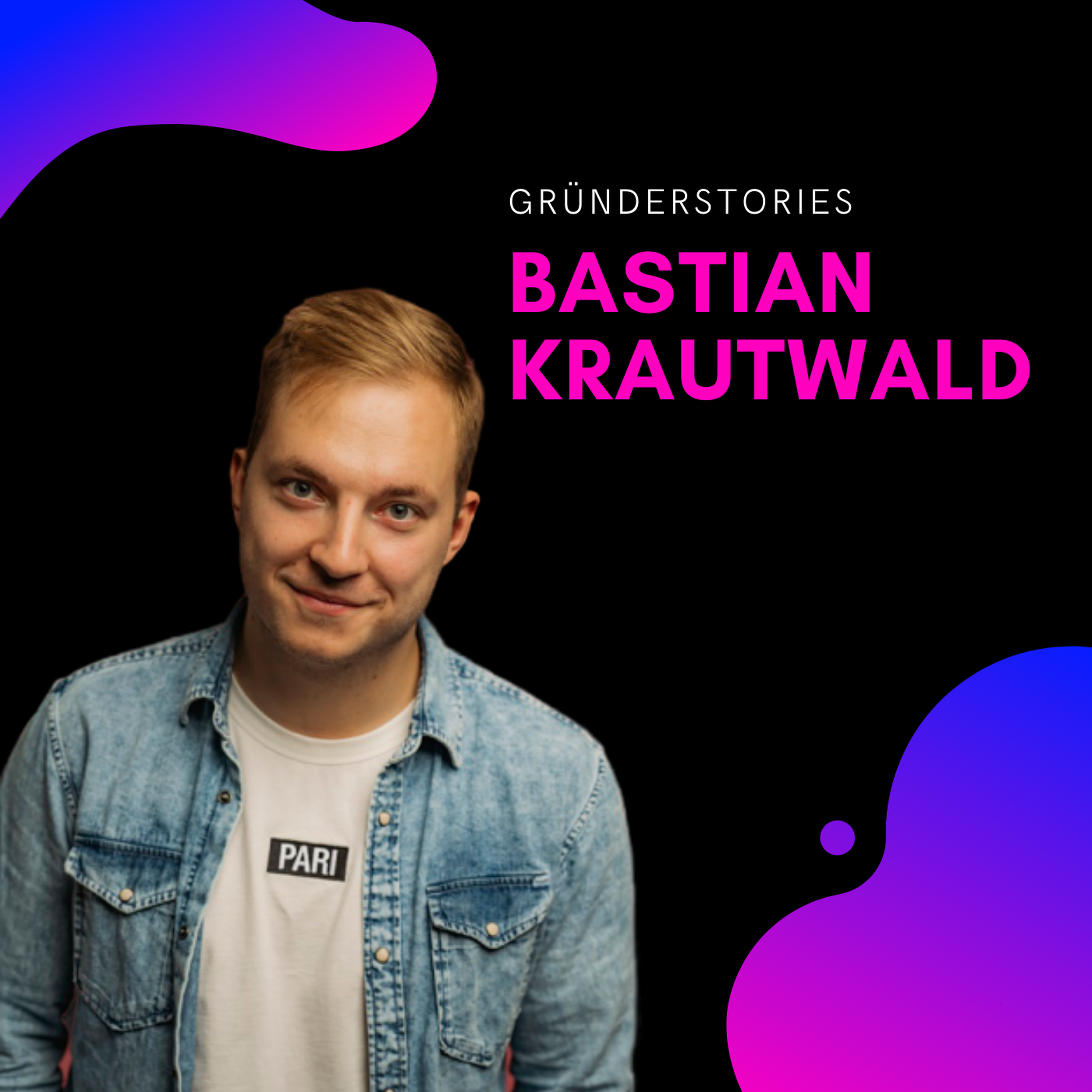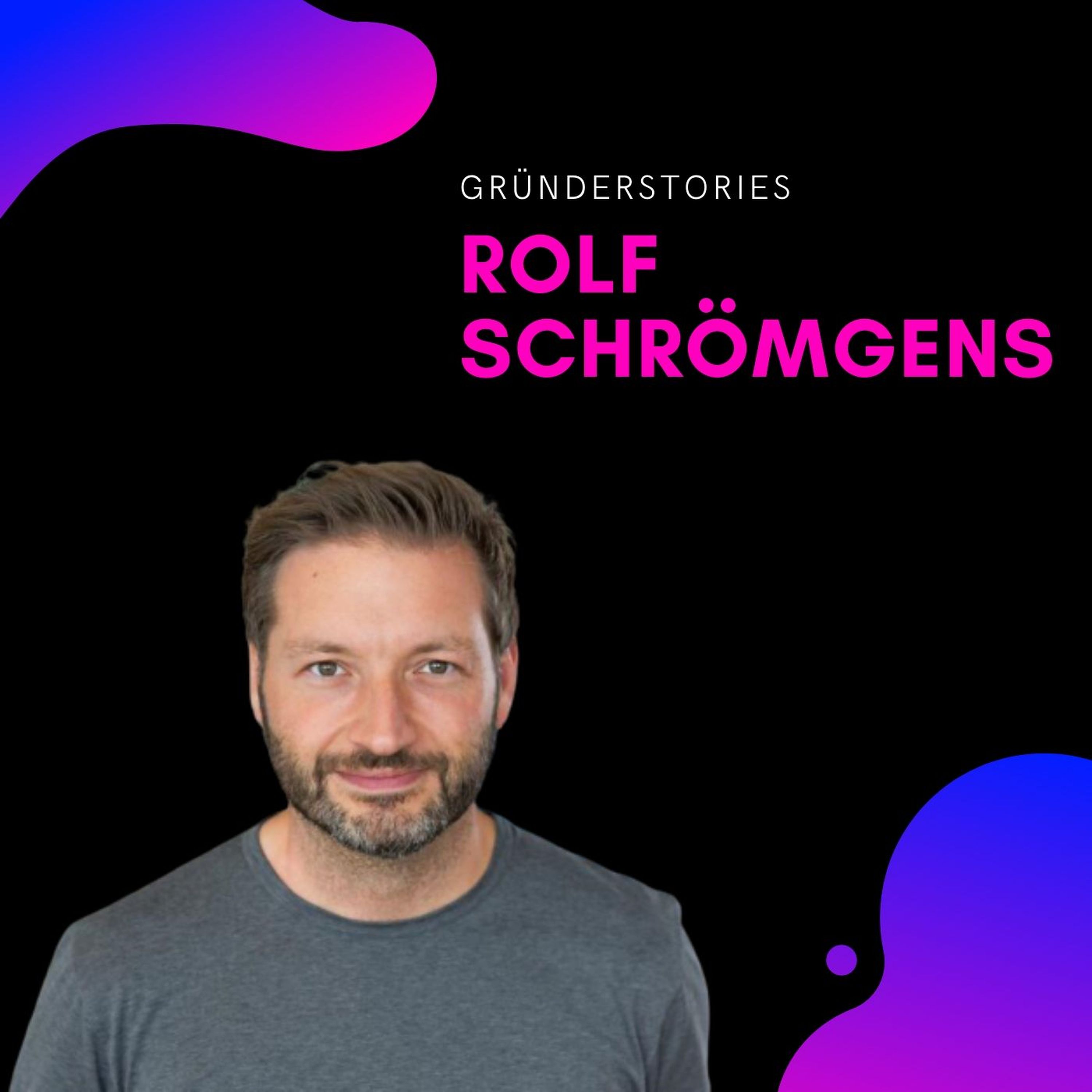Why Your Phone Addiction is no Coincidence & How to Cure it (2x Best-Selling Author Nir Eyal on becoming Indistractable & Building Products People Love)
Nir Eyal, bestselling author of "Hooked" and "Indistractable", joins Fabian Tausch to discuss how to design habit-forming products, balance personal focus, and build a life free from distractions. Nir shares his unique insights on the psychology of habits, why most people misunderstand distraction, and how founders can create meaningful, ethical products that improve users' lives.
What You’ll Learn in This Episode:
- How to Build Habit-Forming Products:
- The Hook Model and how it helps create products that build healthy customer habits
- Why ethical design is critical when building products that people use frequently
- Becoming Indistractable:
- The difference between traction and distraction and why intent is everything
- How to master internal triggers—the root cause of most distractions—and take control of your time
- Time Management and Productivity:
- Why to-do lists often fail and how time-boxing can completely change how you work
- Practical strategies to prioritize reflective work over reactive tasks like emails and meetings
- Balancing Responsibility as a Founder:
- How to define your responsibility when building habit-forming products
- Why founders should consider a use and abuse policy to address overuse of their products
- Nir’s Approach to Angel Investing:
- How Nir chooses to invest in startups using the Hook Model to create positive, habit-forming products
- Examples of impactful companies Nir has supported, like Calm and Sunnyside, and how they create value
ALL ABOUT UNICORN BAKERY:
Where to find Nir:
LinkedIn: https://www.linkedin.com/in/nireyal/
Website: https://www.nirandfar.com/
Join our Founder Tactics Newsletter:
2x die Woche bekommst du die Taktiken der besten Gründer der Welt direkt ins Postfach:
https://www.tactics.unicornbakery.de/
Chapters:
(00:00:00) Who did you write your books for and what is the message?
(00:04:11) As a founder, what responsibility do I have to the user-terms of consuming my product?
(00:09:18) How much can I leave users to their own responsibility to use my product and should I include safety elements in my product?
(00:17:07) How do you feel about the fact that too often overconsumption (e.g. alcohol) is laughed at rather than criticized because it is "normal"?
(00:21:16) Is too much self-optimization unhealthy, even if you are happy with your situation?
(00:23:49) What levers can I move if I feel too much outside influence is affecting my focus on my own projects?
(00:29:09) How important is repetition when you want to tackle things and make them happen, and how do you get rid of external triggers that distract you?
(00:38:32) What is your perspective on the topic of To Do - Lists?
(00:44:42) How does your knowledge of focus and productivity influence your work as an angel investor?
Nir Eyal:
[0:00] Most people will tell you the opposite of distraction is focus, but that's not exactly right. The opposite of distraction is not focus, the opposite of distraction is procrastination.
Fabian Tausch:
[0:09] Social media addiction, and excuses for postponing the things you actually should have done. For all these things, there's actually one simple solution. You and I both know we are checking social media way too much, spending too much time online. Today's episode explores why this is no coincidence. There's a proven framework called the habit loop that Nir Eyal is explaining to us that shows us how products are tricking our brain into addiction.
Nir Eyal:
[0:37] Most people like to think, oh, there's nothing I can do about it. The word addiction comes from the Latin word addictio, which means slave. People want to think, oh, it's not my fault, right? My kid is constantly on his computer. I'm always on my phone. It's not my fault. Somebody's doing it to me. If you're a grown adult, it's going to be your responsibility because the media companies, the news is not going to tell you, hey, stop watching so much news, go have a life.
Fabian Tausch:
[0:58] Nir Eyal is a two times bestselling author of the books Hooked and Indistractable. Nir explains his framework for becoming indistractable because it is the most important skill in our world today.
Nir Eyal:
[1:10] If we're honest with ourselves, we lie to ourselves all the time. We say we're going to do one thing, we do something else. And so the problem these days is not that we don't know what to do. We all know what to do. If you want to lose weight, you have to eat right and exercise. If you want to be better at your job, you have to do the hard work that other people don't want to do. We know. If you want to have better relationships, you have to be fully present with the people you love. We know. But why don't we do it? How do we keep going off track? They're not going to tell you stop watching. The CEO of Netflix said their main competition is sleep. We're going to have to do this for ourselves. If you're the kind of person who wants to live out their potential, who wants to look back at their life and not regret not taking action when you have the chance, then that's my audience. That's the kind of person I'm writing for.
Fabian Tausch:
[1:54] Nir, thanks for joining. I'm very happy to have you on the show.
Nir Eyal:
[1:58] Thank you so much for having me. Great to be here.
Fabian Tausch:
[2:00] Yeah, and a huge thank you to Max Elster, who introduced us, a longtime friend, and I'm very thankful for meeting you. I read both of your books, and it's interesting. I talked to a few people about meeting you, and they were like, you have to ask him one thing. He wrote Hooked about building habit-forming products and then also he wrote Indistractable about protecting yourself from being distracted all the time and being on your phone and here and there. Some people were like, it seemed a bit like he's excusing himself for writing Hooked. And I don't have a real concern here, but I just want to give you the question and let you answer.
Nir Eyal:
[2:48] Yeah, I'm guessing they didn't read the books because I actually address exactly that in the books. The idea is that we can have our cake and eat it too, that we can have both. We want habit-forming products to get us hooked to healthy habits. And we want to break the bad habits to things that distract us. So Hooked is about how do we build healthy habits, right? How can we use the same type of technology that Facebook and Instagram and WhatsApp and Slack and Snapchat all use to get us hooked? But I didn't write the book for them. I wrote the book for everybody who's building the kind of products that can actually improve our lives by building healthy habits in edtech, fintech, healthcare, all kinds of products that can get us hooked to healthy habits. And then indistractable is about how do we get rid of the bad habits? So it's not a negation, it's a compliment.
Fabian Tausch:
[3:33] Okay, fair. And I also experienced it that way, but it's still, I think, one of the most common questions that I think people ask you very often.
Nir Eyal:
[3:43] Yeah, I mean, I made the books look like they were supposed to be kind of a set. You know, the color is the same and they're supposed to be similar because they are on a similar theme, but it's supposed to be two sides of a similar coin. Not to, again, you know, not to negate anything. I did write unhooked. I wrote indistractable because I think it's two separate skills that I think by being in the industry, I think I'm uniquely positioned for, right? Because a lot of times you get people from outside the industry saying, oh, tech is terrible. Tech is melting your brain. Stop using technology. And it's stupid. It's not nuanced, right? Do some technologies hurt us? Yeah, because, you know, as Paul Virilio said, when you invent the ship, you invent the ship wreck. Of course, there are going to be negative downsides to technologies, especially the kind that touch the lives of billions of people. So the right idea, people who are actually in the industry, realize that you have to minimize the harms by creating technologies that fix the last generation of bad technology. You don't stop using technology, you make it better.
Fabian Tausch:
[4:45] I'd say that definitely can be referenced to the social dilemma as well. Like I think a Netflix series that pretty much all of the people listening might have watched because we're all in the industry somehow. So the question is not like, what do you think about the social dilemma? The question is more about if I'm planning to build a product, in the best case, I'm building something that's habit-forming and positive. But what's my... Responsibility as a founder as a product person to input like how do i approach product building when my plan is to have something that people want to use more often but how do i define when it's too much
Nir Eyal:
[5:27] Yeah so there's a lot of questions rolled up into one there uh and uh i was actually interviewed for the social dilemma movie interestingly enough and um i you didn't see me in the film though you see me in the credits if you look at the credits you'll see my name. They talked to me for over three hours for that movie. And I gave them the recipe. So what I told them in the movies, essentially, look, here's how we become indistractable. I'd done my research for my second book, and I basically gave them the formula. And you didn't see it in the movie because, of course, they had an agenda. Because when you tell people, hey, you know what? Yes, media can be distracting because, you know, all media is potentially distracting. For God's sakes, Netflix is the people who brought you the social dilemma, right? How ironic is that? The CEO of Netflix said their main competition is sleep.
Nir Eyal:
[6:19] So, of course, it's potentially distracting. But so is the newspaper. So is television. So is football, right? Half of the world is obsessed with watching football on TV. Should the football league tell you, hey, you've watched too much TV? Stop. No, they're not going to do that. And yet we don't criticize them. Why don't we criticize all other forms of media? Why do we only criticize social media? Well, because it's new and it's scary and it's something that we do. And whenever we have a new technology is we have a moral panic around it. So I'm here to kind of calm tempers and help people look at this in a rational way by realizing.
Nir Eyal:
[6:53] While there are certain people who should be protected. Okay, I think children should be protected. I think people who are pathologically addicted should be protected. But that's a very small proportion of the population. The rest of us, if you're a grown adult, it's going to be your responsibility, right? Because the media companies, the news, is not going to tell you, hey, stop watching so much news, go have a life, right? The New York Times and CNN and Fox News and the football, FIFA, whoever, they're not going to tell you stop watching. We're going to have to do this for ourselves. And so, you know, so when I came to the social dilemma and I gave them the formula, they didn't put in the movie because it was against their their their key thrust, which was to scare people, because one of the best psychological tricks you can use to get people to pay attention to something is to to use fear. Right. The first rule of journalism is if it bleeds, it leads. The news media doesn't tell you what you need to know. They tell you what will get you to pay attention to it. And of course, a social media movie used this trick on you to get you scared so that you'd watch the movie and talk about it. Now, I think that's incredibly unethical. Talk about designing a product that's unethical. I think it's very unethical to scare the shit out of people and not give them a solution that you know that you are aware exists.
Nir Eyal:
[8:09] And so it's as if you walked into a doctor's office and the doctor says, you have a terrible disease and I have the medicine, I have the cure. I'm not going to give it to you. That would be malpractice. And so what the Social Dilemma movie did, I have to give them credit, they did a good job of bringing out this problem. There is a problem. I don't disagree.
Nir Eyal:
[8:28] But they didn't tell you the solution. And the solution is right here, right? It's four steps anyone can implement to become indistractable. So from a personal perspective, there's so much we can do. What most people do, here's what most people do. The social media companies are so bad, they get me addicted, right? Government, please do something. Facebook, stop doing that. It's all Mark Zuckerberg's fault. As opposed to saying, wait a minute, there's about a hook of things that I could do myself. Starting with, hey, how about turning off those stupid notifications that constantly distract you? Maybe that's a start.
Nir Eyal:
[8:58] Right? But we don't do that. Why don't we do that? Because we want to think we're addicted. Most people like to think, oh, there's nothing I can do about it. The word addiction comes from the Latin word addictio, which means slave, right? People want to think, oh, it's not my fault, right? My kid is constantly on his computer. I'm always on my phone. It's not my fault. Somebody's doing it to me, right? But when we think about what it really is, which is not an addiction for most people, there are some exceptions, right? Some people are pathologically addicted. and as I said earlier, those people do deserve special protection. Children also deserve special protection. But for the vast majority of us, it's not an addiction. It's a distraction. But a distraction, we don't like thinking it's a distraction because then I have to do something about it. Well, that's no fun. I have to take personal responsibility. Blah. Who wants to do that? Can I just blame somebody? No. You know, there will be a huge chasm today. There's a bifurcation between people who will let their time and attention be controlled by others and people who say, no, I will control my time and attention because I am indistractable.
Fabian Tausch:
[9:58] I think the first thing to highlight here is that we as an individual have to take ownership first for everything we consume and we do to understand, okay, what do we want to do with our days and weeks and months and how do we want to approach lives? And I think that's the number one thing to state here first from what you said. And then the second thing is, what do I want to think about when I'm building a product from a founder perspective, from a startup perspective, and I need some retention, I need the people to come back, but I also don't want to, like, how much can I just say, okay, they have to have responsibility for themselves, they have to take ownership, I just designed the product as good as possible? Or do I also have to build in, I'd say, security layers myself? Like how much is too much from a product perspective?
Nir Eyal:
[10:55] Absolutely. Okay. So for the vast majority of people listening to this podcast right now, if you're building a product or service and you want to get people hooked, you want to get people engaged in your product or service, this is not going to be a problem. Why? Because nobody's getting addicted to SaaS enterprise software, right? I wish we could get people hooked to exercising apps or to language learning apps or to financial services products that can help them save money. So almost everyone listening today, you will never have the problem of people overusing your product. The problem, people don't care about your product. People don't want to come back and use it. That's the real problem. Almost everyone I've ever met in the startup ecosystem, they don't come to me and say, oh gosh, we might be addicting people. No, the problem is nobody gives a shit, right? Like you built this product that people say they want to use, that your business depends upon them using, and yet they don't come back, right? So that's where book number one comes in handy, Hooked. Now, let's say, however, you do find that you have people who may overuse your product. And so this is something I've written about for years now. For over eight years, I wrote an article about what I call a use and abuse policy, that I think companies who are at risk of knowing that they are addicting people have a special responsibility. And that responsibility is that if you know you are addicting people, okay, and not everybody who addicts people knows there's a difference, right? So think about alcohol, okay?
Nir Eyal:
[12:18] Alcohol manufacturers have no idea of who the alcoholics are. And by the way, we all know you're in Germany, you love beer just as much as I do. Not everyone who has a glass of beer is an alcoholic, right? But why do we think that somehow social media or all these products, oh, people are going to get addicted to? No, a very small proportion of people become alcoholic, a very small proportion of people get addicted, right? Because an addiction is different from a habit. An addiction is a persistent compulsive behavior, a dependency on a behavior or substance that harms the user, okay? It's not the same thing as, ooh, I like it a lot. It's something that takes over your life and is a clinical disorder. It's a pathology. So we toss this word around a lot, but addiction has a very specific definition. So if you, as a company, know you are addicting people, right? And of course, tech companies do know, right? TikTok and Instagram and these kinds of social media companies, they actually do have personally identifiable information, as does the New York Times. If you log into New York Times subscription, they know how much time you're spending online. If you know, I believe you have to have a use and abuse policy, which says.
Nir Eyal:
[13:25] But after a certain number of hours per week, we're going to do something. Okay, we're going to reach out and we're going to say after whatever number of hours a week, I don't know, maybe 30 hours a week, 40 hours, I don't know what the number is. Your company should decide. We're going to reach out and say, hey, you've been using our product to an extent that may indicate you're struggling with an addiction. Can we help? A very respectful message that says, can we help? And then we offer resources. Can we put you on a blacklist so that you're not constantly playing this video game? Can we make sure you don't spend more money? Can we give you resources to help you if you're struggling with an addiction? These resources that try and help people with this pathology of addiction. So that's, I think, a policy that if companies don't start to implement, governments will begin to implement on them and force them to do this. And I support it, frankly, because I think, you know, just like we should protect children, because children, we've deemed as a society that certain things children can't do, right? Children can't gamble in a casino. They can't go into a bar and drink alcohol until a certain age. We need to have certain protections for children because they're not of sound body and mind. The same goes for people who are pathologically addicted. They also deserve special protections. And so if you are in, for example, the gaming industry, if you're in, you know, media type industry, those might be concerns that you think about. And I would recommend, I think the ethical thing to do is to offer up one of these use and abuse policy for the very small percentage of people who might overuse.
Fabian Tausch:
[14:47] I think that's very important to just have in mind and be conscious about. I think you don't have to overstress too early, I think if you have like a few hundred users and you're just starting out then people are, it's very unlikely at first that you will produce a lot of people overusing it but if you can see it or view the numbers going up and up that more and more people are overusing try to think it from the start i think implementing it when you have like let's say just making up the numbers but if it would be tens of thousands of people um then it's just way harder to implement such a process instead of just building it from from day one and thinking it from day one and as i said or as you said sas products won't be affected here last
Nir Eyal:
[15:34] Majority of products will never be affected but you know i think that there is um there's also a different standard that we should hold companies to and that companies should hold themselves to, depending on what people are spending when they use the product. If you are spending time with the product, it's a very low bar, right? Why suddenly we're getting so upset about people spending time on social media when people have been watching hours of television, aimlessly looking at the TV on their couch, as opposed to living a life? Why is suddenly social media a waste of time, but watching football on TV is okay, can someone explain to me the difference? I'd much rather have people interacting with each other than passively watching the television set because all they're wasting is time. And who am I to say that how you spend your time is bad, but how I spend my time is good? It's a pastime. We shouldn't judge people on how they spend their time. Where there's a different ethical bar is where now it becomes money. And so I don't know what the laws are where you are, but in the United States, I've been very disheartened, very saddened to see that we've legalized sports betting. And it's funny because you don't see this very much in the ethical debate. This is a much bigger problem because here, the consequence of overuse is not, oh, you spent a bunch of time in front of a television or in front of your computer. The consequence is you just blew your life savings.
Nir Eyal:
[16:57] So that has a different ethical bar and there should be, I think, much stricter laws. I don't support these laws that let legalize gambling to the extent that it has become legal. And somehow it slipped under the ethical radar. somehow that's okay but social media is off on i know exactly why because traditional media is in competition with social media so they write about it every day in a negative fashion because they're direct competitors yeah.
Fabian Tausch:
[17:21] Um that's true and i think in germany it's also allowed to like sports betting i think it's a bit different with casinos online casinos here and there but um still it's um it's crazy and also too many people are promoting it. I think when I watch football for example, I see five sports betting ads per let's say half time so it's it's a lot so yeah and i i totally understand that these are the things that we should protect people from more than just spending time yeah
Nir Eyal:
[17:57] But where was the social dilemma movie about sports betting somehow i don't know how that happened do you do you understand why there wasn't like a i feel like there was never a public debate about that and it's uh it's really it makes me sad.
Fabian Tausch:
[18:07] But it's the same with a lot of things right We don't have a huge alcohol debate in, let's say, large media or on Netflix, for example, as much as also smoking. I think they are doing a lot of lobbying in all industries that seem to harm people or that not seem to, that harm people, that they try to not get talked about too much. Of course, here and there is an article, here and there is a book, here and there is a YouTube video that blows up. but it seems like these things often get forgotten because people are like oh yeah but that's that's normal by now and it shouldn't
Nir Eyal:
[18:46] You said it exactly right like when something is old it's normal we feel like oh it's always been here but you're absolutely right smoking my god how how do people still smoke today like i i don't understand it it's uh it's a it's amazing to me but but they do and you can educate the hell out of people uh and at some point uh it It becomes very, it becomes, I don't know. I don't know how much more we can do for people to help them understand how harmful smoking is. And when you try and take it away, oh, it's personal freedom. Oh, I want to. And that's the kind of stuff I do think we need more regulation because it's such a clear connection between public health concerns. Whereas how people spend their time online, it gets 90% of the media attention. But when we think about addiction, we think about media addiction, screen addiction, but yet real addiction that takes your health away, we don't really talk about it anymore because it's not sexy anymore. It's old.
Fabian Tausch:
[19:44] Absolutely and I recently watched a video on alcohol and then after that we are moving back to startup topics I think but and the introduction was amazing the introduction was imagine you get born today with everything that you know somebody comes to you says hey here's a contract you have to sign it you're spending over a lifetime more than 100,000 euros dollars no matter where you are you will get pretty much nothing out of it. Maybe a lot of headache, a lot of unconsciousness, maybe a very bad sleep. Maybe in the moment a little bit of fun time, but you will regret often afterwards if you're overusing it. And yeah, pretty much you're paying me money. You're not getting anything back besides health problems or at least for the moment sacrificing a little bit of your health. and I
Fabian Tausch:
[20:44] Nobody would sign this contract but he said it's so normal with alcohol today that we automatically sign this contract when we are born because it's just in our society and i was thinking about it and i was like that's amazingly framed i'm a thousand percent like way more hooked about this idea on how to approach and think about alcohol than like yeah alcohol is super bad just don't do it just like the framing of how it um spans out throughout a lifetime i was a crazy well done introduction yeah
Nir Eyal:
[21:21] That's a great point it's a great point it's one of those things that we just kind of fall into because it looks so normal because it's been here for so long uh we don't take a step back and be like wait wait a minute is this actually what i want to do and by the way that actually segues very well with the topic of indistractable because indistractable is not just about tech habits. It's about all kinds of bad habits. It's about anything that we do and we look back later and we regret. It's spending money with regret. It's about spending time with regret. It's about spending our health with regret. If we don't exercise when we say we will or we smoke or we drink or whatever it is, and then we look back and we say, wait a minute, why did I do that? And so that's what I'm trying to prevent in my own life. I mean, the book was really, I wrote the book for me more than anyone else. What I'm trying to prevent in my life is looking back with regret. And those regrets come from distractions. When I know what I want to do, I know I want to live my life a certain way, and then somehow I did something else. And so that's what was so fascinating to me is this question of why is it that despite knowing what to do, right? We all know what to do. We know smoking is bad. We know that drinking is bad. We know that too much time on social media is bad. We know this stuff. And yet, why don't we do the things we say we're going to do. The answer is not because somebody is making us do it. The answer is because we don't know how to control ourselves yet.
Fabian Tausch:
[22:37] That's true. Before we jump into like how to actually get indistractable, because I think it's important for a lot of founders out there, is the question about like self-optimization. Because I think a lot of critics about people trying to optimize everything in their life and rethinking everything is like, oh yeah, you're just self-optimizing too much. And I can imagine that a lot of people wrote this to you as a feedback or told you at some point um that there is a a there are a few people who are like yeah that's a bit too much like how about like how much is ownership and how much is maybe can it get unhealthy to self-optimize too much are we thinking about productivity too much like how do we integrate this all in a life where we're like in the end happy and not like optimizing for the wrong reasons.
Nir Eyal:
[23:26] Yeah, look, if your life is great, if you're happy and you don't want any changes in your life, don't read my book. It's not for you. It's a book for people who, like me, knew that I knew that I was capable of more. Okay, I knew that I could do better in life, that I knew I was, when I was with my daughter, I was often distracted. I was checking my phone as opposed to being fully present with her. I knew that, you know, I would say I was going to exercise, but I didn't. I said I was going to eat right, but nah, I wouldn't.
Nir Eyal:
[23:57] I knew I needed to work on that big project and that I would keep procrastinating on that thing I wanted to do, that I finally wanted to, you know, write that blog post or work on that business or whatever the case might be. I would keep procrastinating and not doing the important work. And if that's where you find yourself, then this is the answer. It's not for the person who says, hey, my life's perfect. If your life's perfect, live your life. I don't want to change you. What I want to do is to help people who say one thing and yet do something else, right? And I hate to admit that, but that was me, right? We know that one of the worst things you can call someone is a liar. To be called a liar is a terrible thing. We would hate being called a liar by someone else. And yet if we're honest with ourselves, we lie to ourselves all the time. We say we're going to do one thing, we do something else. And so the problem these days is not that we don't know what to do. We all know what to do. If you want to lose weight, you have to eat right and exercise. We know, right? If you want to be better at your job, you have to do the hard work that other people don't want to do. We know. If you want to have better relationships, you have to be fully present with the people you love. We know. But why don't we do it? How do we keep going off track? And so if you're the kind of person who wants to live out their potential, who wants to look back at their life and not regret not taking action when you have the chance, then that's that's my audience. That's the kind of person I'm writing for.
Fabian Tausch:
[25:17] And I definitely found myself in that audience when I when I listened to the book. So therefore, I just wanted to to take away the critics first and state who this is for and why we're talking about this. And I can imagine that a lot of founders are ran by their calendar and not run their calendar themselves. So that's why I want to talk about a bit more strategics and tactics on how to manage that. So what is the most important thing that I have to realize when I'm currently feeling completely ran by somebody else and like not like I can commit to the things that I really want to commit to?
Nir Eyal:
[25:59] Yeah. So we should start with what is distraction, really? So distraction is one of these words I thought I understood, but when I actually started doing the research, I realized that I didn't really get it. So the best way to understand what distraction is, is to understand what distraction is not, right? What's the opposite of distraction? Most people will tell you the opposite of distraction is focus, but that's not exactly right. That if you look at the etymology of the word, the opposite of distraction is not focus. The opposite of distraction is traction, right? We have traction and distraction.
Nir Eyal:
[26:31] Traction is any action that pulls you towards what you said you were going to do, things that move you closer to your values and help you become the kind of person you want to become. The opposite of traction, distraction, distraction is any action that pulls you away from what you said you were going to do, away from your values, away from becoming the kind of person you want to become. So you see that both traction and distraction end in the same six-letter word, A-C-T-I-O-N, that spells action, reminding us that distraction is not something that happens to us, but rather it is an action that we ourselves take. So it's important to distinguish between these two things, traction and distraction, because I would argue the difference is one word, and that one word is intent. That the time you plan to waste is not wasted time, as Dorothy Parker said. So if you plan in advance to watch television, to drink a beer, to hang out with your friends, to play video games, whatever it is that you want to do with your life is fine, as long as it's done with intent, as long as it's what you said you were going to do in advance. Those are acts of traction. The opposite, distraction is anything that pulls you away from that, is not what you plan to do. So it's not about moralizing and medicalizing and say, oh, playing video games, social media, that's bad. No, it's only bad if it's not what you said you were going to do in advance.
Nir Eyal:
[27:50] Whereas distraction, this is actually, if you think about it, the things that cause people to get distracted, it's not the usual suspects. It's not the, you know, Facebook and Instagram. That tends to not actually be the real culprits of distraction. The worst kind of distractions are the distractions that we don't even realize is tricking us. So, for example, this is what I used to do every day. I used to go to work and I used to sit at my desk and I'd say, okay, I'm going to work on that big project that I've been delaying. I'm not going to procrastinate. Here I go. nothing's going to get in my way. I'm going to get started.
Nir Eyal:
[28:23] But first, let me check some email. Right? Let me just scroll that Slack channel real quick. Let me just do this one thing real quick, just to get started. And what I didn't realize was that that one thing, even if it was a work related task, was taking me away from what I said I was going to do. And so by definition, it's a distraction. So just because it's a work related task, doesn't mean it's not a distraction. If it's not what you said you were going to do with your time and attention, it is by definition a distraction, even if it's work-related, right? Just because it's checking email or whatever, that is the worst kind of distraction because you don't even realize that you've gone off track, that that is not what you said you were going to do with your time and attention. So that's really important. We have to understand traction and distraction.
Nir Eyal:
[29:06] Now we have to talk about the triggers, the things that prompt us towards traction and distraction. These come in two types. We have what we call external triggers. External triggers are all the things around us, the pings, the dings, the rings, all the things in our outside environment that can lead us towards traction and distraction. And then we have the internal triggers. Internal triggers account for 90%, 90% of our sources of distraction. So only 10% of our distractions come from things outside of us. 90% come from within us. What are internal triggers? Internal triggers are uncomfortable emotional states. Thank you.
Nir Eyal:
[29:44] Boredom, loneliness, fatigue, uncertainty, stress, anxiety. This is 90% of the source of our distraction. So to answer your question, what's the first step to becoming indistractable? It's mastering these internal triggers or they will become your master. Because whether it's too much news, too much booze, too much football, too much Facebook, you are always going to get distracted by something or another unless you realize why you are getting distracted in the first place. And 90% of the time, the reason for that distraction is an uncomfortable feeling, okay? And this is something that, this is where we talk about personal responsibility because until you understand that emotional state, you won't be able to do something about it. And so what you need to have is these tools in your toolkit ready to go so that when you feel bored, do you automatically check your device? If you don't know what to do at work and you feel uncertain, do you check email? Or do you pause for a second and you actually know what it is you plan to do in advance? So step number one to becoming indistractable is master the internal triggers. And there's over a dozen different techniques I give you in the book so that you can have these tools ready to go so that you use the tools as opposed to the tools using you.
Fabian Tausch:
[30:51] And I still catch myself until today, like boredom. Okay, let me check Instagram. Let me check WhatsApp. Let me check. But just let me pick up my phone and do something else instead of thinking about, okay, what will happen if I have some boredom and some free time to spend some thoughts And it's crazy. And I definitely also in preparation for this interview realized, okay, until I mastered this, I have to re-listen to the book, let's say once a month or every six weeks, because otherwise I will forget about it. I was very good in the let's say two weeks after listening to the book and then it became a bit slippery and then I didn't do it as much and I was a bit focused differently or not focused or however and distracted because of this and that and then at some point it was not a habit yet and so I decided to take the books that I really want to implement and re-listen to it rather than always trying to consume new stuff and um because otherwise how how should i master things after just reading it once listening to it once so for everybody out there you're not alone you we all have the same struggles here um just take the time give yourself the time and repeat things just don't try to know everything after after one try yeah
Nir Eyal:
[32:13] Yeah and i'll tell you a secret i have to repeat these things for myself, right? Because our natural tendency, the brain is always looking for the path of least resistance. Your brain is always, it's called, it's a cognitive miser. You're always trying to do the least work to relieve that discomfort. So it's very easy to slip back into these very quick solutions that don't ultimately benefit you. So even I get distracted from time and time. Being indistractable doesn't mean you never get distracted. I still get distracted from time and time. The difference is, That an indistractable person understands why they got distracted. So they can stop getting distracted by the same things. A distractible person keeps getting distracted by the same things. It's like Puello Coelho, he had a wonderful quote. He said, a mistake repeated more than once is a decision. I'll say it again because it's so good. A mistake repeated more than once is a decision. So, okay, if you get distracted by social media, okay, it happens. But how many times can we get distracted by social media before we say enough? Okay, I got it. they're distracting. So what am I going to do? A distractible person keeps getting distracted by it and they're making a choice to be distractible because they're not doing anything about it. An indistractible person says, oh, okay, you got me. I was distracted. You got me. How can I take steps today to prevent getting distracted tomorrow? And so that's where exactly, I still do this to this very day. I'll take out my own book and I'll look through it and I'll say, okay, that this is a distraction that didn't get me before, but it got me this time. What can I do? How can I use these four simple steps to make sure that this doesn't happen again?
Fabian Tausch:
[33:43] We talked about internal triggers. That definitely means that there are externals as well. And I think a lot of them come to mind. What would you say are the, let's say, most often happening and most likely happening external triggers that we need to understand and figure out how we control them or disable them that we don't get distracted all the time.
Nir Eyal:
[34:07] Yeah. So it depends on context. It depends on where you spend your time and your life, essentially. You know, are you a person who works from home or a person who works in an office? I'll tell you that in an office setting, the number one distraction is not the pings and dings. It's not your computer. It's not your phone. It's other people. That survey is fine. That is the number one source of distraction is somebody stops by your desk and say, hey, can I talk to you for a quick minute? Where's that TPS report? Did you hear this office gossip? That's the number one source of distraction in the workplace. And so if you look at inside every copy of the book, there's actually a screen sign. There's a piece of cardstock in every single copy of the book that you tear out. You see, it's different from all the other pages. You tear it out. I had to fight with my publisher to do that. You tear it out of the book and you put it on your computer monitor. So it tells your fellow colleagues, look, the sign says on it, it says, I'm indistractable. Please come back later.
Nir Eyal:
[34:59] And so it sends this very clear message to your colleagues that for this moment, I need to concentrate. please come back a little bit later. Very, very effective if you're working in an office environment. But, you know, what about all, I think, a much greater or equally important source of distraction, especially these days, are all these meetings, right? Especially now that we can have Zoom meetings, it used to be kind of difficult. There was friction to calling a meeting. Well, today, it doesn't matter where you are. People can just put meetings on your calendar. And so today, I think, you know, we don't think about the easy stuff, the pings and dings. I I spend one page in the book about talking about, okay, how to hack back your cell phone or your computer. That's kindergarten stuff. Anybody, if you don't know how to change the notification settings.
Nir Eyal:
[35:39] Google it. It takes five minutes, okay? That's kindergarten.
Nir Eyal:
[35:42] What about all the stupid meetings that we attend every day that didn't need to be called? That is a massive source of distraction. And part of the reason is that people don't understand what meetings are for. People have forgotten the purpose of meetings. Oh, let's just get together and talk about this. No, no, no, no. The purpose of meetings are not to talk about stuff. The purpose of a business meeting, of a synchronous business meeting, is to gain consensus. There are social meetings, right? Taking someone else out to lunch, social meeting. There are brainstorming sessions, right? That's a different type of thing. And by the way, you know the optimal number of people for a brainstorming session? What's the optimal number?
Fabian Tausch:
[36:18] Two. I'd say two.
Nir Eyal:
[36:21] Or less, right? As opposed to what happens today, people say, well, let's get on Zoom and we'll have a meeting. We'll talk about this. What tends to happen is that when we try and have these brainstorming sessions with more than two people at a time, the loudest, the most male, the highest paid and most dominant person runs the conversation. And so we don't get everybody's opinion. So what the heck is the point? A much better strategy is to tell people, hey, here's the problem. Here's the homework that I did. Here's some education for you on the homework, the research that I did. We're going to have a meeting in order to gain consensus for what I think we should do next. So I would say that one of the biggest sources of distraction to these external triggers are these superfluous meetings that are called today. But there's others, of course, too. If you work from home, it could be your kids. It could be a huge source of distraction. I talk about in the book what to do about that. Of course, it could be your phone, your computer. Group chat. Group chat is another hellhole of distraction because people, again, don't know how to use it properly. They leave it on all day long, which is terrible. But these are all very solvable things that we can hack back.
Fabian Tausch:
[37:28] Yeah, absolutely. And I think one other thing that I would love to add here, For me as a person, the biggest issue was that I was like giving others too much control about my calendar and just like agree to a lot of things. And then from the day or the minute I woke up to like I could only finish my stuff at the end of the workday if I still had enough energy. I did not prioritize my stuff enough. I was reactive instead of proactive. And just like it can be traveling, it can be meetings, it can be whatever. Whatever and i was like holy shit that's i'm i'm losing so much energy by just doing what others want and i haven't even started this and that and i need to um send this email out today or tomorrow or whatever but i don't have time to finish it before the deadline if i don't spend the night or the evening with that and like taking at least control and that's for me it's easy i'm like mid-20s i'm i don't have any responsibilities um to to other people family etc but i can spend the morning the way i want uh and just say hey i don't do meetings before 10 or 11 depends on the days and depends on the reasons but um like just having the flexibility to plan my morning instead of just like starting with reactivity changed a lot.
Nir Eyal:
[38:47] Absolutely. Yeah, you're hitting on this critical step of making time for traction, which is actually step two to become indistractable. If you don't plan your time, somebody's going to plan it for you. So this is where we have to decide in advance how we spend our time. And the way most people spend their time is doing what's called reactive work. Reactive work is when we react to messages, reacting emails, reacting to meetings, reacting to what other people want of us, as opposed to spending at least some part of your day doing reflective work, okay? At least some part of your day needs to be planned on your calendar.
Nir Eyal:
[39:21] To think, to strategize, to be creative, that kind of work cannot be done with distraction. You just can't do that kind of creative work unless you are left alone to do it. And so you have to put that time on your calendar because if you don't, what happens with most people, they get habituated to reactive work. They start enjoying, in a way, being told what to do, right? I don't want to have to really think about my priorities. I don't want to have to think about the hard work. So I'll just check my email inbox. My email inbox will tell me what to do, right? Well, that's ridiculous. I think because what you're doing is you're running real fast in the wrong direction. Or people come up with cockamamie excuses like, oh, you know, my clients might need me. My boss is going to need me. You know, we're in the customer service business. Somebody's going to need me. I have to be on call all the time. Bullshit. Almost never true, right? There are some, if you're in a call center, different story. Your job is to sit by the phone and wait for the calls. Different story. But the vast majority of white-collar workers, your boss can wait 30 minutes so that you can finish your focus work time before you get back to that message. There's almost never an actual, oh my God, emergency that somebody can't wait a few minutes until you finish that time block to do proper work.
Fabian Tausch:
[40:33] Absolutely and one other thing i i would love to hear your opinion on um is to-do lists you just have to tell me what you think and we i'll tell you what i think but what do you think about to-do lists
Nir Eyal:
[40:46] Yeah so to-do lists suck and i'll tell you why but i should qualify that it's not that to-do lists on their own suck it's that most people don't use them appropriately okay what most people do is they think of something they put on a to-do list and then they hope they do it and they almost never do. That's how most people use to-do lists. So the first step is right, right? We should take things out of our brain and put them on a piece of paper in an app. Very good. But that's step one, okay? The problem is if you just leave it at that, if you write all the things you have to do and then you think you're going to do them, you probably won't finish them. You.
Nir Eyal:
[41:23] You can always add more to a to-do list. And so what happens at the end of the day, you work real hard and you get home from work and you look at your to-do list and you still have a hundred things you didn't finish. And so what does that do to your psyche? What does that do to your sense of self when you said you promised yourself we're going to do all this stuff and you didn't get it done?
Nir Eyal:
[41:39] Loser. And so you begin thinking, oh, day after day, week after week, I don't do the things I say I'm going to do. And that's where you hear people saying these stupid things like, oh, I'm no good at time management or I'm easily distracted or, you know, I'm a Sagittarius. That's why I can't focus. You hear them saying all this ridiculous stuff. It's not that they're broken. It's that this stupid technique doesn't work because writing things down is just the first step. The second step is to put it on your calendar.
Nir Eyal:
[42:06] If it's not in your schedule, it's not going to happen. Okay. Whereas a schedule has constraints, right? When you say there's only 24 hours in a day, you can't make more hours. It forces you to make certain trade-offs and to realistically assess what you can work on for certain times of your day. So the right metric, people who use a to-do list, they measure themselves by how many cute little boxes they check off, right? I've known people who will write things down after they do them just so they can get the joy of checking the box. How stupid is that, right? But the reason this is so silly is because it's measuring the wrong thing. It doesn't matter how many cute little boxes you check off. You know why? Because that incentivizes doing the things that are easy and fun. But the hard and important work doesn't get done, right? You do the urgent, you do the fun, you do the easy. That's good. I can check it off. But you don't do the stuff that really, really matters. As opposed to people who use a time box calendar, which is what I advocate for in Indistractable, you measure yourself by a different metric. The right metric to measure yourself is not did I finish the task.
Nir Eyal:
[43:12] Not did I finish. It's not did I get to check off the box. Wrong metric. The right metric of success is did I do what I said I was going to do for as long as I said I would without distraction. That's it. Did I do what I said I was going to do for as long as I said I would without distraction. That thing can be spending time with your kids. That thing can be working on the big project. It can be making sales calls. It can be checking email. But only doing that in the time that I said I would. Why is that so important? Because the biggest problem with to-do lists is that you have no idea how long things take you to finish. If you put a finished presentation, here's what happens. You start, you know, you have it on your to-do list. You say, okay, I'm going to work on that presentation. You start working on it for five minutes. It gets a little difficult. Let me just check email for a few minutes. Okay, I did that. Let me, now I'll work on the presentation for two more minutes. Oh, but now I have a phone call. Now I have this. You don't know how long things take you to work to do, as opposed to when you have a time box schedule, You work on the presentation for 30 minutes without distraction. You do nothing but. And then you can say to yourself, oh, OK, I need to make a 30 slide presentation. I got there about three slides. So that's about 10%. So I need 300 minutes to finish the whole presentation.
Nir Eyal:
[44:27] Now you can start evaluating, here's how long something will take me to finish and you can start putting it in your calendar, which is why people who don't measure themselves by whether they finish a task and only use this time box method actually finish more. They get more done than people who use just the to-do list because they're able to assess how long things are realistically going to take them. So it's not that to-do lists are wrong, it's just that they're incomplete the way most people use them.
Fabian Tausch:
[44:53] A few years ago, I started talking about to-do lists as to-do graveyards, for me personally. Because everything that I did not put in my calendar or just set reminders for, in a certain way, it was just like, I will never do it. I could find hundreds of to-dos that I thought I should do at some point and never did. And I have to steal one of your recommendations because, of course, after I read the book or listened to Indestructible, I also looked at the resources. And one tool that I discovered that changed the way how I work by far, so thank you at this point already, is Motion. And I know you use it as well because what Motion does, it combines your calendar and your project management and to-do list. You can then put in a task and you're like, hey, I need to finish this presentation. It's highest priority. I have to do it by tomorrow. And motion automatically shows you when it might make sense to work on this. And if you have an upcoming other event, let's say we are jumping on a call, then it just reschedules in a way that you can work on the things you said you need to work on instead of just picking out what is the next thing that has priority. If you then have stuff with lower priority it gets pushed back a bit and it just helps you so much with organizing
Fabian Tausch:
[46:18] Tasks and reacting to a calendar that can get new meetings, new stuff new anything or different priorities and it just automatically helps you manage this this completely changed how I approach my day and I am really thankful for this recommendation and that's why I will also put it in the show notes because it's like it blew my mind that this is working so easily then.
Nir Eyal:
[46:46] I'm so happy to hear that. That's fantastic. You made my day.
Fabian Tausch:
[46:49] Yeah, I'm absolutely thankful for it and that's like the last question about productivity and but I want and or and being indestructible and and managing time just because we are running out of time at some point but I have one more question and All of this that we talked about, how does this affect your approach as an angel investor? As I said in the beginning, in the introduction, you're investing. How does this, all that we know and talked about, how do you approach angel investing?
Nir Eyal:
[47:18] So I invest in companies that use the hook methodology exclusively. I don't invest in companies that I don't feel like I could offer some value as an investor, right? There's lots of places you could go get money.
Nir Eyal:
[47:30] I want to be the kind of angel investor that makes the product better by giving unique insights in terms of what I know about how to build habit-forming products. So I look for the kind of products that, A, build customer habits, and B, build healthy habits. It can really change the world and change people's lives by building habits for good. So you mentioned some of the companies I invested in, like Eventbrite and Kahoot are some of the more successful companies. But I also invest in companies that are up and coming, that are quite successful, that really do some great social causes as well. For example, I'm an investor in a company called Sunnyside. They used to be called Cutback Coach, which actually deals with something we talked about earlier. They help people cut back on drinking alcohol, not to go abstinent, not to never drink, but it's an app to help people consume less called Sunnyside. And so that's a great demonstration of how we can use habit-forming technology. It's through an app, how we can use the hook model to help people live better lives. So that's the kind of products I look for. You know, I look for all the usual stuff like products that are in a big market and great team, etc.
Nir Eyal:
[48:37] But they also have to use the hook model as part of my criteria for me to invest. Not because you can't build a successful business without it, but just that I want to make sure I can add value. So I won't invest in, you know, I don't really understand crypto or pharmaceutical products, you know, biotech, cyber. I don't really think I can add much value there. So I don't tend to invest in those categories, but I invest in companies that build healthy habits.
Fabian Tausch:
[49:01] And the super last question promised, who out of the investments that you made would be good additions for the show? Who should I talk to where like, hey, it would be amazing to dive a bit deeper on how these people think and because it would do good for a lot of and thousands of founders out there.
Nir Eyal:
[49:20] For a startup founder to interview? Yes. Yeah. So I think the Sunnyside guys are really interesting. They're killing it. There's another company called Dynamic Care, which is a company, one of my portfolio companies. Dynamic Care is a company that helps people who are addicted to substances. So whether it's meth or heroin or various drugs, they help people fight their addictions through an incentive program that uses variable rewards. So the incentive to stay to not using drugs is that you get to enter into a sort of lottery to win something. Sometimes you don't win anything, but sometimes you win a hundred dollar gift card. Sometimes you win an iPhone. And it's amazing. It sounds so simple. You're like, how could that possibly work to help people stop using heroin? And it does. It's amazing how effective this this technique can be. And now it's being legislated. Actually, governments around the country are investing in similar programs to help people fight addiction. It's become a very successful treatment program, along with other things. It's not just this, right? It's a whole treatment program. So those are two founders I think that you would enjoy speaking with, Dynamic Care and Sunnyside.
Fabian Tausch:
[50:39] I will definitely have a look. Nir, it's been an absolute pleasure.
Nir Eyal:
[50:43] There's others too, by the way. I've got a whole list of companies if you want others.
Fabian Tausch:
[50:46] I will ask you and then ping you afterwards. Thank you so much. It's been an absolute pleasure having you on the show. this has been an outstanding podcast of course I link to your blog I link to the books I link to the tools that we talked about and it's been an absolute pleasure I think it's very important to talk about these topics more often and also learning and adapting them as a personal like just for personal well-being so therefore thank you so much for joining
Nir Eyal:
[51:15] My pleasure thank you.












